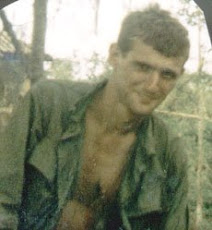The movie, Lions and Lambs, spoke to me. Good ethereal movie! It had various stereotypes which were probably necessary to tell a story or to have a point or points of view. The usual implied stuff is there: bad intell that led us into Iraq; basically doing what the Preident wanted anyway, along with Rumsfelt, Pearl, Wofowitz; and, of course, no real consideration to what could happen and surely not an exit strategy. But, we know all this.
The movie is basically three stories and a little or a lot implausible--could this happen? There were no real heroes in Lions and Lambs other than the soldiers. Robert Redford, a college professor, (political science, I think) uses one of his disillusioned students to make his point. The disilusioned student is the prototype for the ipod or X generation.
Much of this seems contrived but for the purpose of the story is irrelevant to me. In the course of this amazing dialogue about all the issues of the war, we discover that Redford is himself a Vietnam vet and yet became a "John Kerry" type after the war, i. e. antiwar.
Two minority students from his class decide that they can make a difference but only in being directly involved; by serving--in this case, the military. Redford's character is taken aback because this is not what he intended. What makes it a little, "come on" is the idea that two minority students would opt once they are already in college, some place like UC, Berzerkerly, to go into Special Forces and suffer all that just to make a point. I don't think so. But, this was the movies and they can make anything happen they want too. The movie is done in many flashbacks, one being where the two minority students are making a presentation in the class. The class has to be about making a difference in society. They actually present my idea of National Service.
The politician, played by Tom Cruise, was really a stereotype of someone like, choose any: bombastic, a world view that is meddling in other countries, the cliches, etc.; didn't give one much confidence in politicians or politics, even if we needed any encouragement to think they were self serving.
The soldiers were part of a small A Team of Special Forces soldiers which represented a supposely new strategy in Afghanistan, fight and operate in small groups and be a force. This was a strategy that the Senator, a West Point graduate, finished 1st in his class, helped develop. A concept, which, by the way, we used in Vietnam. And, I believe would have worked there had we not introduced conventional forces into the mix--might work in Afghanistan or Iraq if we were willing to stay there for years and years, which we aren't.
The soldiers died, ran out of ammo as they were fighting the Taliban, we assume. It didn't seem that they had much ammo, no grenades, anything like that. Actually, they had fallen out of the back of a hook, close to the ground when it took fire and turned around, thus leaving them on the ground.
The critics panned it and I can understand but I don't think they saw the larger picture. One critic called the movie a "talkathon" and it is mostly. However, I think critics are jaded themselves mostly and have lost their sense of seeing soemting for its greater good. (I saw August Rush and loved it. Now, this is an implausible movie but you shoudl take your grandchildren).
I think the most striking thing to me had to do with the concept of those whom this country has given the least are in fact those most willing to serve, i. e, at least as this movie portrayed it. But, too, I think that it is much of the Volunteer Army concept even if soldiers are serving for different reasons.
Also, what is equally interesting to me is why the war movies aren't doing any better at the box-office and not just the Iraq ones: even Flags of our Fathers and Letters from Iwo Jima, didn't do well. Americans or those who ordinarily give a whit, maybe tired of war, uninterested, uninvested, adinfinitum.
I think that what we are seeing or beginning to see are the early stages of the same things that Vietnam vets saw. There is already an apathy out there. I see it with comments from soldiers. Let's face it, people in America have little interest in hearing soldiers experiences. And, the few Iraqi vets that I've talked too seem to feel that since there is little sacrifice in America, this adds to the lack of interest. I think so but the soldies don't really objectively know this, simply they think it which is equally important. And, now, of course, the poor attendance at the war movies bear this out.
There's only so much to be said. But, still, these guys, like us, have participated in the event of their lives and they'd like folks to be interested. Even to see the movies. With the exception of one I haven't seen, Redacted, which is the first movie that is critical of soldiers, at least I hear it is. Bill O'Reilley, supposedly railed against it.
To be honest, I don't know: when I've tried to engage people about Iraq, not much traction. What most don't get either for us or for Iraqi vets, the war doesn't end when someone comes home. God bless them.
Saturday, December 01, 2007
Subscribe to:
Post Comments (Atom)



No comments:
Post a Comment